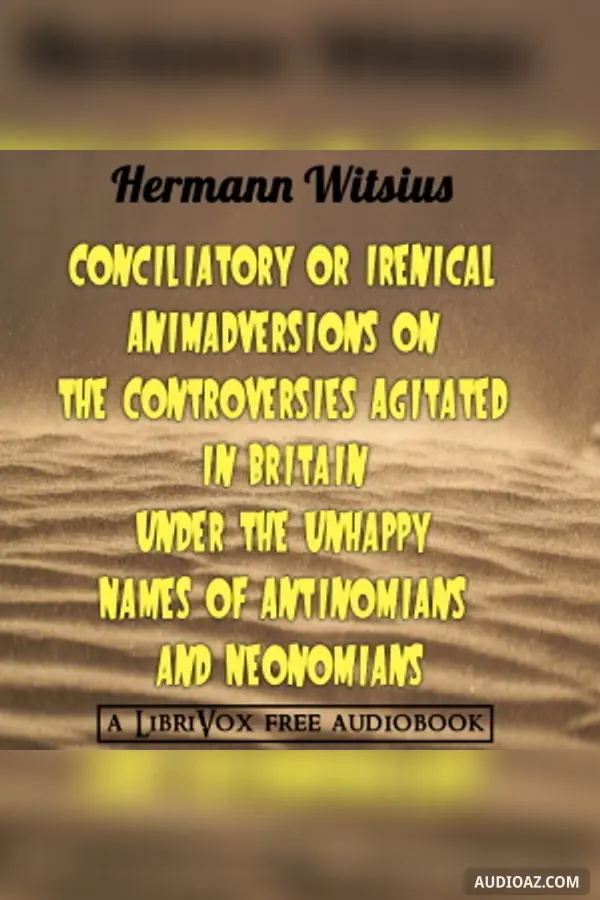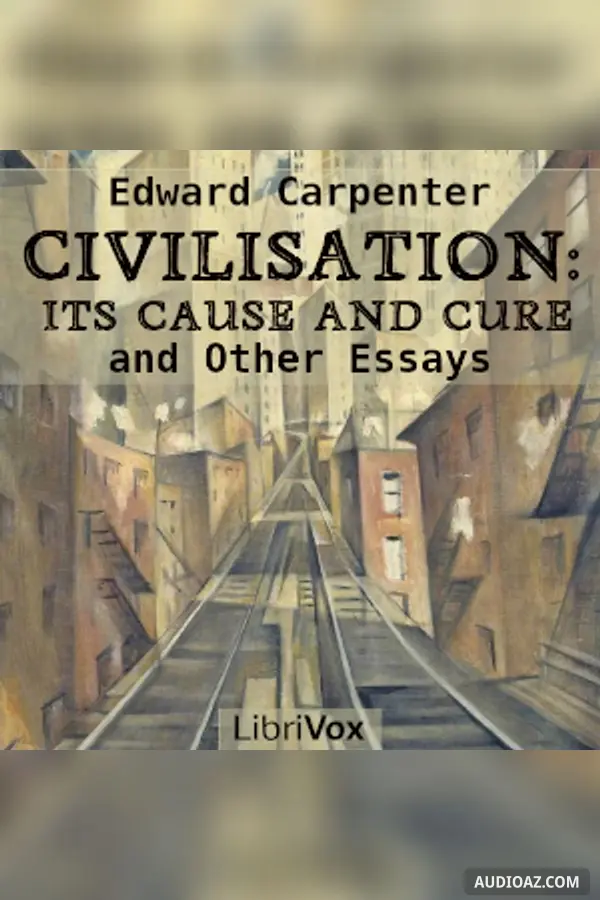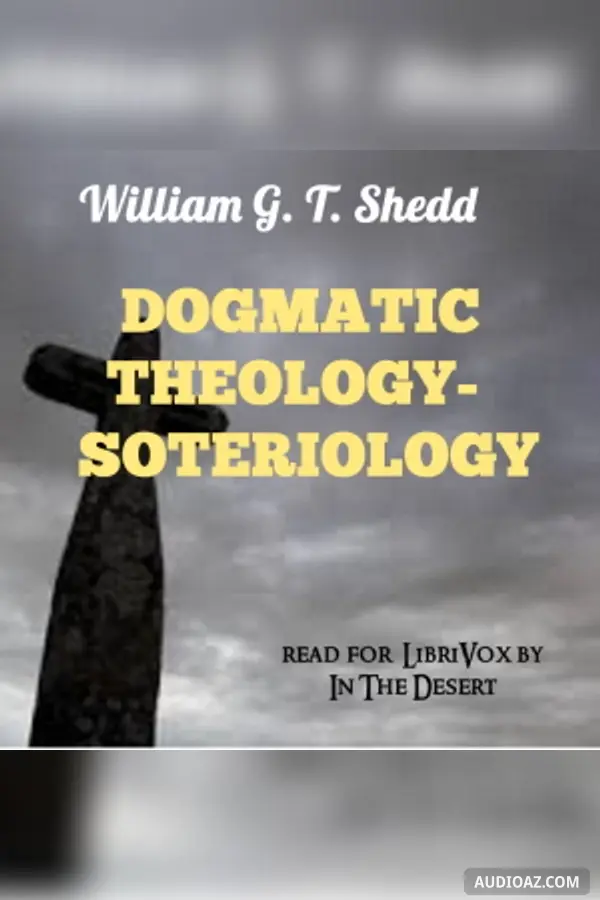
Conciliatory or Irenical Animadversions on the Controversies Agitated in Britain under the Unhappy Names of Antinomians and Neonomians - Audiolibro Gratis
Autor(es): Hermann Witsius
Idioma: English
Género(s): Cristianismo - OtrosNo ficciónReligión
1 / 19The author's preface to the British divines and translator's preface
- 1. The author's preface to the British divines and translator's preface
- 2. Concerning the translation of sin to Christ
- 3. Whether Christ can with propriety be called a sinner, and whether a certain exchange of persons takes place between him and the elect
- 4. When the translation of sin to Christ, and his bearing it commenced and ended: and whether, when carrying the sins of the elect, he was separated from God, abominable to him, and abdicated by him
- 5. Whether by Christ taking upon him the sins of the elect, and satisfying Divine justice, absolutely purchased eternal salvation fcr them
- 6. Whether the right to the eternal inheritance be applied to the elect at their first nativity, or at their regeneration. And whether God imputes no more in point of guilt to an elect person when living in excessive lasciviousness than when he is perfected in the heavens
- 7. Whether the elect are united to Christ before faith, and whether, not only the fruits of his righteousness, but also it itself is imputed to them
- 8. Concerning Paul's judgment in the matter of justification
- 9. Concerning the law of works, the works of the law, and faith
- 10. Concerning the essence of faith
- 11. What relation faith has to justification
- 12. Whether repentance precedes the remission of sins
- 13. The explication of certain paradoxes
- 14. Our judgment concerning these paradoxes
- 15. Concerning the covenant of grace
- 16. Paradoxical assertions concerning the utility of holiness
- 17. The doctrine of scripture concerning the utility of holiness
- 18. In what manner and order the preaching of the law should accompany that of the gospel
- 19. Conclusion
Acerca de
The Antinomian-Neonomian controversy of the 17th century was initiated by the republication of a set of sermons by Tobias Crisp entitled "Christ alone exalted" which were accused of antinomianism by Richard Baxter who in turn was accused of 'neonomianism', "the idea that Christ has, by his atonement, so lowered the requirements of the law that mere endeavor is accepted in room of perfect obedience." (Cyclopaedia of Biblical, theological, and ecclesiastical literature, 1880, Article: Marrow Controversy)
"The name antinomianism is a comparatively modern designation of several types of ethical thought in which hostility to the Mosaic law (including the decalogue) and to the principles therein embodied has led to immoral teaching and practise...1. That the Moral Law is of no use at all to a believer, nor a rule for him to walk in, nor to examine his life by, and that Christians are free from the mandatory power of it: whence one of them [Antinomians] cried out in the pulpit, "Away with the Law, which cuts off a mans legs and then bids him walk." 2. That it is as possible for Christ to sin as for a child of God to sin. 3. That the child of God need not nor ought not to ask pardon for sin, and that it is no less than blasphemy for him so to do. 4. That God doth not chasten any of his children for sin, nor is it for the sins of God's people that the land is punished. 5. That if a man know himself to be in a state of grace, though he be drunk, or commit murder, God sees no sin in him." (The New Schaff-Herzog Encyclopedia of Religious Knowledge 1908, Article: Antinomianism)
"The learned and orthodox Witsius undertook to review the sermons along with the books of other writers, with whom Dr Crisp had no connection; and he wrote an Irenicum, which (as far as the Doctor is concerned, for Witsius mentions no author by name) may be fairly said to absolve him from all accusations, except as to what were called some paradoxical assertions concerning the utility of holiness and good works, which (says the Irenicum) "appear with quite another face when the hideous vizard of the most rugged phrases is torn off". The Theology of Consolation, David Agnew (p.42-43)
This led to the appeal made to him by London ministers some years afterwards, to arbitrate on the differences of doctrines... The result was the publication, in 1696, of the book known as Witsius' s Irenicum, which was received with gratitude and admiration by readers acquainted with Latin. It was not till the year 1807 that an English translation was published, the work of the late Rev. Thomas Bell of Glasgow, a minister of the Relief Synod. The title of the English work, which is a literal translation of the original, is "Conciliatory or Irenical Animadversions on the controversies agitated in Britain under the unhappy names of Antinomians and Neonomians." The Theology of Consolation, David Agnew (p.392)
(Summary adapted from various public domain sources)
Comentarios
Sé el primero en comentar
Aún no hay comentarios sobre este contenido. ¡Inicia la conversación!
Descubrir Más
Etiquetas: Conciliatory or Irenical Animadversions on the Controversies Agitated in Britain under the Unhappy Names of Antinomians and Neonomians audio, Conciliatory or Irenical Animadversions on the Controversies Agitated in Britain under the Unhappy Names of Antinomians and Neonomians - Hermann Witsius audio, Cristianismo - Otros audio, No ficción audio, Religión audio, free audiobook, free audio book, audioaz






